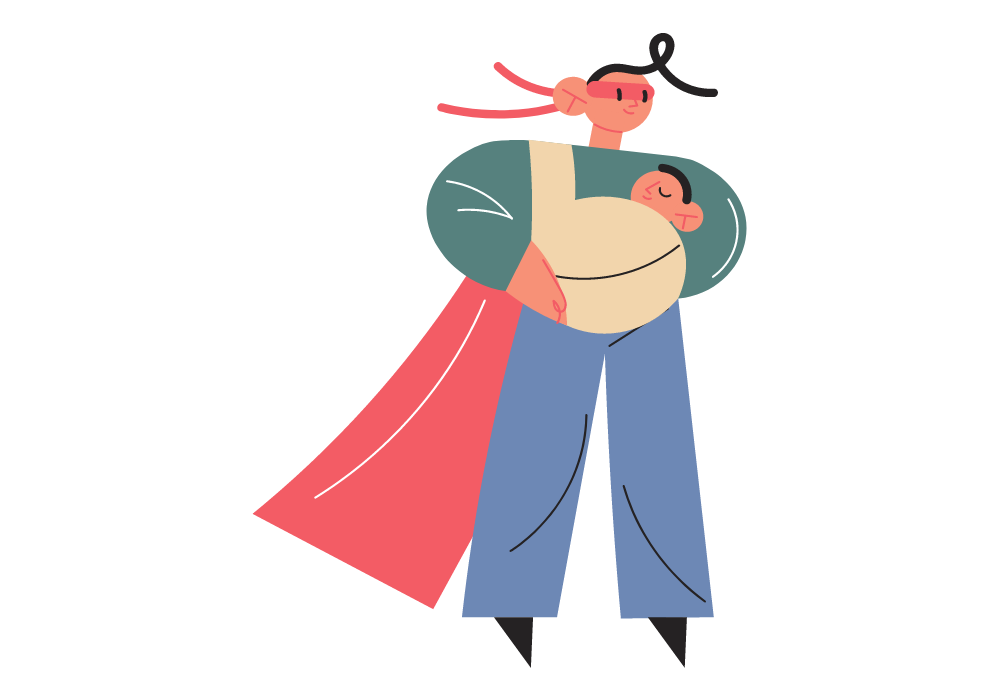by Ramona Depares
Picture this – it’s 6.30PM and you’ve just finished enjoying family dinner with your husband and your toddler. For most of us, this is the part of the day when we start winding down, getting ready to get the remaining house chores out of the way and to enjoy some quality time with our little ones and our partners.
Not so for Rebecca Mizzi. A midwife by profession, she works night-shifts at Mater Dei Hospital every four days. So, when the rest of us are ready to chill, this working mum puts on her work clothes and prepares herself for another eventful night in the Obstetrics Ward. This, of course, after a full day taking care of Emilia, who is two, and the house.
“This is not the easiest of professions when you’re a mother, of course. In fact, after my daughter was born I had taken two years off work – this, after seven years in the profession.” Rebecca explains.
Now, she has finally been able to go back to work, albeit with some necessary adjustments as Emilia is not yet in childcare.
“For now I’m back on a part-time basis, working one night every four days. So that’s 20 hours a week. Given that I take care of Emilia full-time, that’s the only option. Sure, there are some midwives who manage to go back to their full-time position after having kids, but the reality is that for the majority of us this is difficult,” she tells me ruefully.
A Relay Race
With a paediatric surgeon as a husband, it’s easy to see why Rebecca has taken up the full burden of childcare. It is something that, she herself acknowledges, presented a massive change in her life, one she had to get used to.

“My husband also works long hours, so basically it’s a relay race between the two of us, to and from hospital. I get back from night-shift and he’ll be waiting for me with Emilia so he can then rush off to hospital,” she says.
The decision for Rebecca to be the primary caregiver was an organic one: the young mother explains that Emilia was breastfed until just over two years of age, so it naturally made more sense for her to be around. But how has the little one reacted to her mother’s re-entry into the work force – especially as this means that mummy is not around at night-time?
“Well, Emilia doesn’t know me any other way, so she doesn’t really think that it’s weird that I work at night. Of course, it was a bit daunting for all of us at first. I’d been putting her to sleep myself for nearly two years, then suddenly last September our routine changed completely,” Rebecca replies.
She adds that the first few weeks as a working mum were hard, especially as she was still breastfeeding Emilia at the time. Moreover, the toddler had to get used to the fact that her mummy wouldn’t be always the one putting her to bed.
“We’ve had to adapt. What I try to do is have dinner together as a family towards 6pm before I leave for work. Sometimes we do get some waterworks before leaving, but that’s to be expected. All in all, she copes very well. This means I don’t miss much of her day, only about an hour and half, as she goes to bed at 8pm.”
It also means that, on some days, the mission of toddler bedtime is taken away from Rebecca while the mother still gets to spend most of the daytime hours with her daughter. While this may come as a surprise to those who aren’t used to such a schedule, Rebecca adds that many of her colleagues choose the night shift for family-friendly reasons.
“It basically helps you adjust around the family.”
Even Superheroes Need Sleep
Surely she must be exhausted after a night-shift, however. Rebecca nods, remembering those days when she’d get home from the night shift and flop straight into bed.
“Before I became a mother I would sleep from 8am till noon after a night shift, unless I had something super urgent to do. Today things are different, and typically I don’t manage to get to sleep before midday, which is when Emilia naps. I manage to rest until about 2pm on a good day, though as she gets older I’ve also noticed that she has started to reduce the nap durations.”

I can’t help wondering how she manages not to drop off through sheer exhaustion. The reply is pragmatic: “Basically, I sleep when she sleeps. People say it’s impossible to do this, but if you work nights you simply have to,” she asserts.
To make up for the lack of sleep, Rebecca tries not to schedule too much right after a nightshift, preparing meals in batches ahead of time so that she can just take the time to sit and play with Emilia.
“My mum also makes herself available for a few hours after my nightshift, and this helps.”
Surviving On Coffee and Playtime
When she isn’t working, a normal day for Rebecca starts at about 6.30AM, which is when her husband gets up. Confiding that she isn’t a morning person, Rebecca explains that she tries to keep early mornings quiet, with coffee for her and playtime for Emilia.
“Once the school runs start, I know that quiet mornings will be a thing of the past, so I am trying to make the most of them while I can. I also try to involve Emilia in the morning chores – they may take more time this way, but she enjoys being involved.”
By 10am, she tries to be out of the house, running errands or enjoying an activity with her daughter. Afternoons are kept for playtime, while for Rebecca it’s the time she uses to follow her interests, such as writing.
“Once the afternoon gets underway, we play some more and I prepare some snacks and food. With a toddler you will find that snack preparation is a recurring theme!”
Unless she is working, after 8pm is when Rebecca gets to have some me-time until it’s bedtime for her too. But on nights when she’s at the hospital, any sort of schedule goes out of the window.
“A typical night shift can be anything from taking care of a mother in labour to post-natal care. Things are still busy overnight in our department, because birthing doesn’t take a break after sundown. And babies still wake up to be fed at night. This is an aspect of my job that I love, the way there’s no room for boredom. I’ve encountered so many different people with different needs, so many new stories…” Rebecca says, adding that the profession of midwifery remains very much misunderstood globally.
“For me, the decision to go back to work during a pandemic was not an easy one. You do feel there is an element of risk for yourself and your family. But I also needed to go back to work for myself, as I’m at my best when I’m working. I was also very aware that the pandemic had put strains on the system, so any hands that could be on deck would certainly be helpful.”
Despite this, she adds that the separation anxiety from Emilia was still very real.
Flexibility For Fathers
“I do feel there is a real need for paternity leave. Fathers need to spend time bonding with the child after the birth. And it’s not fair on a mother to be left alone in the house with a new baby. My husband is very involved with the care of our daughter, but it’s difficult to expect fathers to be involved when we’re not giving them the opportunity to form a relationship with the new child. We focus a lot on the working mum, and how they juggle work and child rearing, but it’s good to look at those fathers who are juggling both, too.”

She poses a question that I’m sure many also wonder: are we giving fathers the opportunity to be as hands-on as mothers?
“I don’t think we’re taking this seriously enough, what fathers can bring to the table,” she concludes.



